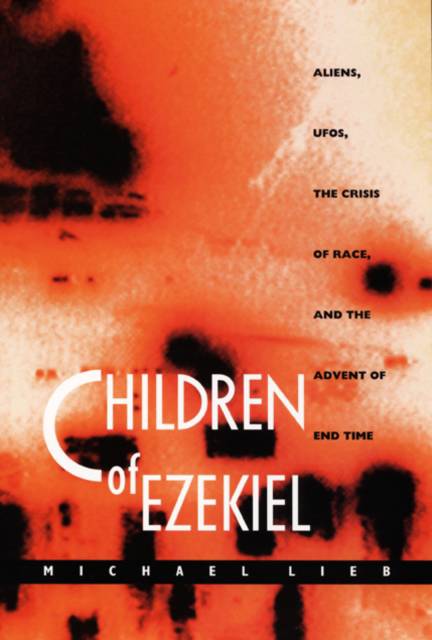
- Retrait gratuit dans votre magasin Club
- 7.000.000 titres dans notre catalogue
- Payer en toute sécurité
- Toujours un magasin près de chez vous
- Retrait gratuit dans votre magasin Club
- 7.000.0000 titres dans notre catalogue
- Payer en toute sécurité
- Toujours un magasin près de chez vous
Children of Ezekiel
Aliens, Ufos, the Crisis of Race, and the Advent of End Time
Michael Lieb
Livre broché | Anglais
48,45 €
+ 96 points
Description
Are Milton's Paradise Lost, Ronald Reagan's "Star Wars" missile defense program, our culture's fascination with UFOs and alien abductions, and Louis Farrakhan's views on racial Armageddon somehow linked? In Children of Ezekiel Michael Lieb reveals the connections between these phenomena and the way culture has persistently related the divine to the technological. In a work of special interest at the approach of the millennium, Lieb traces these and other diverse cultural moments-all descended from the prophet Ezekiel's vision of a fiery divine chariot in the sky-from antiquity to the present, across high and low culture, to reveal the pervasive impact of this visionary experience on the modern world.
Beginning with the merkabah chariot literature of Hebrew and Gnostic mysticism, Lieb shows how religiously inspired people concerned with annihilating their heretical enemies seized on Ezekiel's vision as revealing the technologically superior instrument of God's righteous anger. He describes how many who seek to know the unknowable that is the power of God conceive it in technological terms-and how that power is associated with political aims and a heralding of the end of time. For Milton, Ezekiel's chariot becomes the vehicle in which the Son of God does battle with the rebellious angels. In the modern age, it may take the form of a locomotive, tank, airplane, missile, or UFO. Technology itself is seen as a divine gift and an embodiment of God in the temporal world. As Lieb demonstrates, the impetus to produce modern technology arises not merely from the desire for profit or military might but also from religious-spiritual motives.
Including discussions of conservative evangelical Christian movements, Reagan's ballistic shooting gallery in the sky, and the Nation of Islam's vision of the "mother plane" as the vehicle of retribution in the war against racial oppression, Children of Ezekiel will enthrall readers who have been captivated, either through religious belief or intellectual interests, by a common thread uniting millennial religious beliefs, racial conflict, and political and militaristic aspirations.
Beginning with the merkabah chariot literature of Hebrew and Gnostic mysticism, Lieb shows how religiously inspired people concerned with annihilating their heretical enemies seized on Ezekiel's vision as revealing the technologically superior instrument of God's righteous anger. He describes how many who seek to know the unknowable that is the power of God conceive it in technological terms-and how that power is associated with political aims and a heralding of the end of time. For Milton, Ezekiel's chariot becomes the vehicle in which the Son of God does battle with the rebellious angels. In the modern age, it may take the form of a locomotive, tank, airplane, missile, or UFO. Technology itself is seen as a divine gift and an embodiment of God in the temporal world. As Lieb demonstrates, the impetus to produce modern technology arises not merely from the desire for profit or military might but also from religious-spiritual motives.
Including discussions of conservative evangelical Christian movements, Reagan's ballistic shooting gallery in the sky, and the Nation of Islam's vision of the "mother plane" as the vehicle of retribution in the war against racial oppression, Children of Ezekiel will enthrall readers who have been captivated, either through religious belief or intellectual interests, by a common thread uniting millennial religious beliefs, racial conflict, and political and militaristic aspirations.
Spécifications
Parties prenantes
- Auteur(s) :
- Editeur:
Contenu
- Nombre de pages :
- 320
- Langue:
- Anglais
Caractéristiques
- EAN:
- 9780822322689
- Date de parution :
- 30-11-98
- Format:
- Livre broché
- Format numérique:
- Trade paperback (VS)
- Dimensions :
- 149 mm x 235 mm
- Poids :
- 498 g

Les avis
Nous publions uniquement les avis qui respectent les conditions requises. Consultez nos conditions pour les avis.






